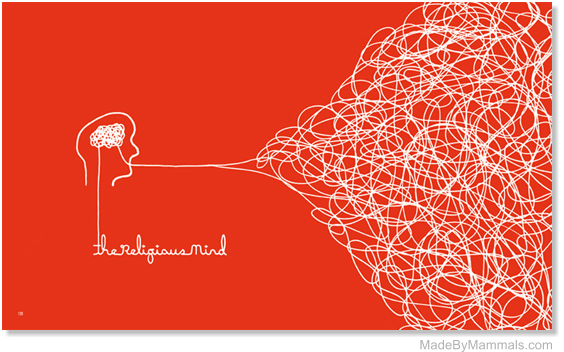Although I’m not a fan of the ubiquitous lists that always appear at this time of year, I recently received this request:
Hello, I really enjoy reading your blog. Thank you for the thought provoking articles. I have reviewed the references/resources above and would like to ask you for an additional recommendation: If you were to list 1 to 3 books, no more, which give a summary and present a critical approach to the anthropology of religion (including theory of mind, if possible), what would they be? As a trained cultural anthropologist (with a keen interest in psychology, music cognition, and neuropsychology), I already have some familiarity with the field. But I would like to refresh my knowledge and perhaps gain some new insight. Thanks!
I’ve been sitting on this question for a week and have been unable to think of any book that critically summarizes the whole field — it is simply too big, divergent, and unwieldy. There are handbooks and readers that span the entire field, but these don’t impose much structure or form on what can be a bewildering topic.
As you probably know, anthropological treatments of religion vary widely. Cultural anthropologists tend to avoid (or even condemn) explanatory and scientific approaches to religion, while biological anthropologists tend to avoid big behavioral questions or social issues (like religion) that are not amenable to testing.
Oddly enough, this means that archaeologists have occupied the middle ground and been responsible for moving the field forward. Because archaeologists study material remains, they have an obvious bias but this has not kept them from venturing into cognitive territories. With these things in mind, I recommend the following:
- Shamans, Sorcerers, and Saints: A Prehistory of Religion by Brian Hayden (2003). This book covers more ground than the title suggests. Hayden is an archaeologist who operates within a cultural ecology framework. He is not, however, simply a material determinist when it comes to religion. In terms of a basic historical overview, this is the place to start.
- Conceiving God: The Cognitive Origin and Evolution of Religion by David Lewis-Williams (2010). Lewis-Williams is a cognitive archaeologist whose work is deeply informed by his expertise in San or Bushmen ethnography. Although the book contains an unnecessary polemic, Lewis-Williams surely is on the right track when he argues that fluctuations in consciousness play a major role in religious experience. His neurobiological model is solid.
- Faces in the Clouds: A New Theory of Religion by Stewart Guthrie (1995). Guthrie is the rarest of breeds — a cultural anthropologist who situates his work within a cognitive-evolutionary framework. This book more or less jump-started much of the recent scholarship in this field. While several books using cognitive approaches to religion have appeared since this was published, I don’t think any are better. In fact, most are worse because they aren’t informed — as Guthrie is — by the social and cultural dimensions of religion.
In closing I want to mention two things. First, cognitive (or what used to be called “intellectualist”) approaches to religion only tell half the story. However defined, religion is also a social and cultural phenomena. It’s always a good idea to balance these readings with something like The Sacred Canopy: Elements of a Sociological Theory of Religion (1990) by Peter Berger. Second, many of the ostensibly new cognitive approaches to religion are simply old ideas wrapped up in modern scientific language. In many cases, the older material is far more subtle and insightful than the scientifically impressive sounding new stuff. Though the idioms are dated and different, it is hard to beat David Hume’s Natural History of Religion (1757), Ludwig Feuerbach’s Essence of Religion (1845), Edward Tylor’s animism chapters in Primitive Culture (1871), and James George Frazer’s Golden Bough (1890). We always read about these classics without actually reading them. Those who do will be surprised and amply rewarded.


